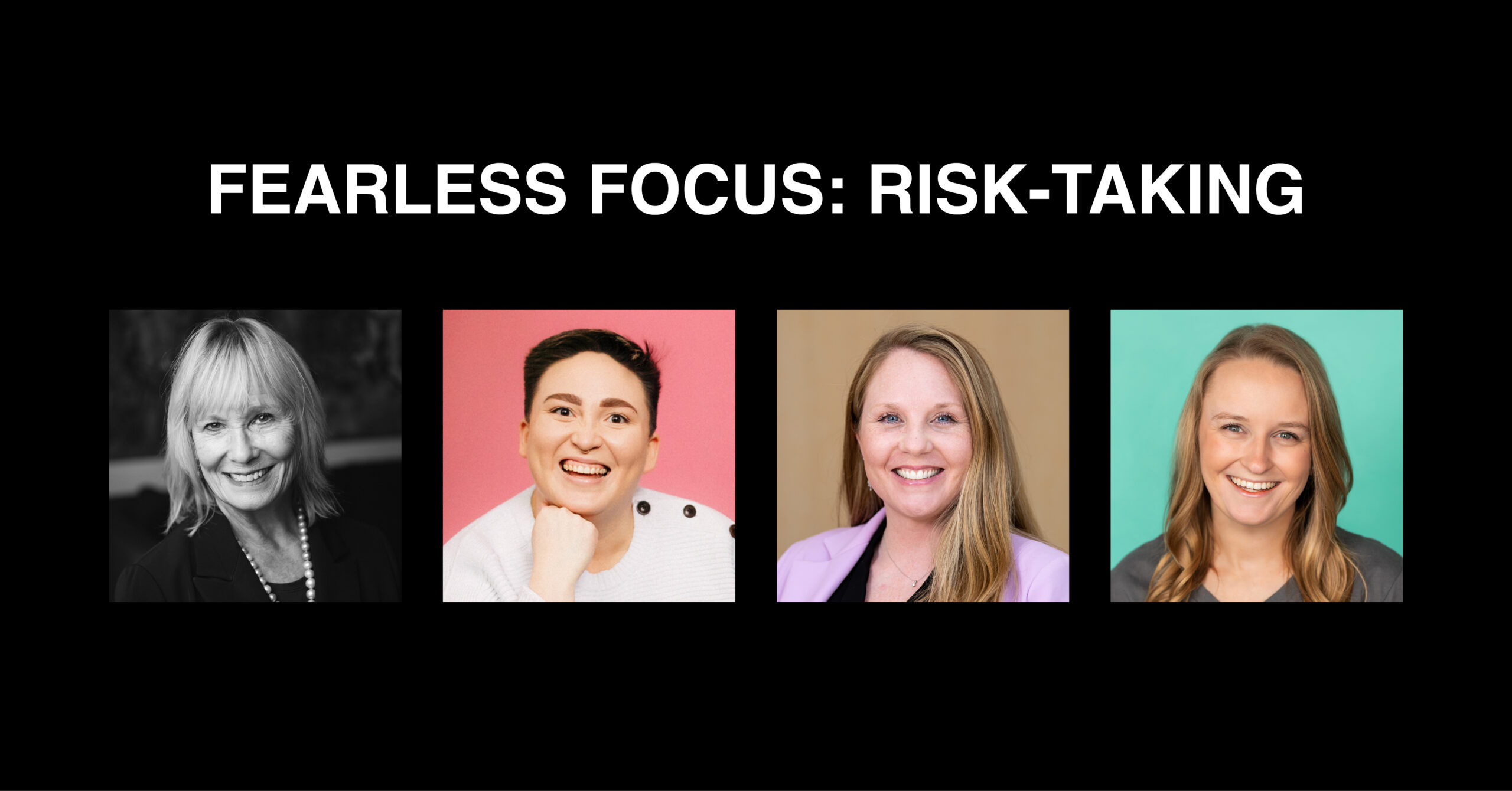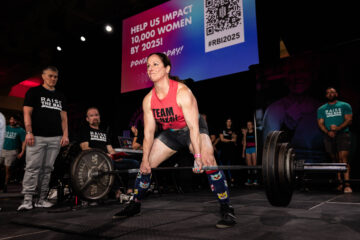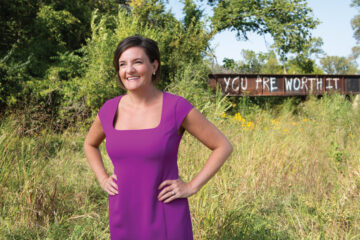4 takeaways from our Fearless Focus event on risk-taking

Having the courage to take a risk is a privilege – because in order to take big risks in work and in life, people first need their essential needs met and then often need some practice taking smaller risks, speakers said in a recent discussion.
The Fearless team hosted our final Fearless Focus event of this year’s three-part virtual series on Oct. 10. The event focused on risk-taking and overcoming failure.
Speakers included:
- Jasper Chung, photographer and art teacher
- Jann Freed, author and speaker
- Laura Phillips, vice president of engineering, Pella Corp.
- Sydney Rieckhoff, CEO, Almost Famous Popcorn
Watch the discussion:
See the replay of the event at fearlessbr.com/past-events.
Here are a few takeaways from the event.
‘Be just a little more brave than afraid’
Chung talked about opening up to the world about their diagnosis of being bipolar. “I really wanted to show that people with mental illnesses look many different ways and live many different lives, including my life as a successful and compassionate business owner,” they said. “In sharing this, folks began to come to me with their own stories of mental illness, of feeling alone, thanking me for sharing. I began a storytelling project that told stories of survivors of suicide attempts, and began to connect with people who really appreciated the vulnerability that I shared.”
Chung also said they’ve had many different moments of coming out as queer and trans. “In Iowa, existing as a trans person, sadly, is a risk. … It is a risk in the world as a whole. I worried, again, about people misunderstanding, about rejection, hate, judgment and isolation. But I decided once more to be just a little bit more brave than afraid.” As a wedding photographer, they’ve chosen to work with clients with similar values and their business has now become “a place of community and advocacy,” they said.
Change is different than transition
“Change often happens to us, transition happens within us,” Freed said. Change can be things like losing a job, divorce or an illness. Transition is how you respond to it.
To prepare for transition, she advises clients to imagine they’re swinging through a jungle. “It’s hard to let go of one vine if you don’t see another vine in sight,” Freed said. She advises always thinking of your next move to make it easier to let go.
Success at any age
Rieckhoff is CEO of her company at 25 years old and started the business at age 14. She says people often tell her how great it is that she’s accomplished so much for her age or they want to know who’s helping her because they don’t think she could be where she is on her own. She tells them, “I definitely don’t have it all figured out and I definitely haven’t done it all on my own.”
People can face ageism at any age. Much of Freed’s work focuses on retiring the word “retirement” because she sees it as a time of transition from a career, not retiring in life. Much of our identity can be wrapped up in what we do for work, Freed said.
“When we meet someone new, like at a networking event, we often say, ‘Well, what do you do?’” she said. “Now I’ve learned to say, ‘What are you interested in? What are you passionate about?’ Because if somebody says to you, ‘I’m retired,’ it’s just a conversation killer.”
Asking what someone does can make those who are retired, have nontraditional career experience or are in a period of transition feel like they have no value.
Rieckhoff is glad to have mentors that don’t believe in her despite her age but because of her age. Those mentors know she brings a different perspective to the table that should be embraced. “Don’t ever let anybody tell you you’re ‘too young,’ ‘too old,’ ‘to this’ or ‘to that.’ Follow your dreams and just go get started and see where it can lead,” she said.
The importance of mentors
Being the first and only woman in many settings has been common for Phillips in her career in engineering. A mentor advised that she be proactive about speaking up in meetings. To hold herself accountable, Phillips started keeping track of how many times she spoke up by ticking them off in her notebook. She said the simple technique helped normalize using her voice.
Mentors are so important for helping you find confidence, she said. A couple of the best mentorship traits she’s valued in her mentors have included being an empowering cheerleader and also having someone willing to disagree with you.
“In 2021 I was asked to rejoin the engineering department after being away from it for about 10 years,” Phillips said. “I was terrified, to be honest, I knew when I came back, I was being asked to come back as a senior leader. I was going to be the only female on the senior leadership team. I was also going to be, by far, the least tenured. I was like, ‘Oh my gosh, they’re not going to want to work for me. They’re going to quit if I come to the team. This is going to be a complete disaster.’ This is the storyline I had created in my head.”
Then a mentor asked her, “‘What good could come from this? What do you bring that they don’t already have?’ … Having her push on me a little bit helped me realize I bring great leadership skills, business acumen, strategy development, vision. I can lead through change, I can develop talent.”
Use your fear as fuel to help you keep going, Phillips said.
“Push through and overcome that story that you tell yourself about not being enough,” she said. Instead, reflect on the “unique strengths that you bring that can have a positive impact.”

